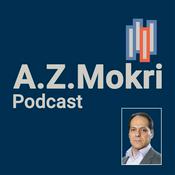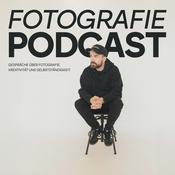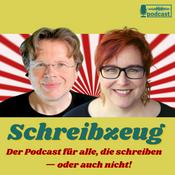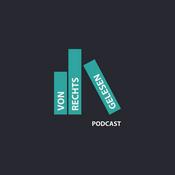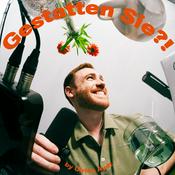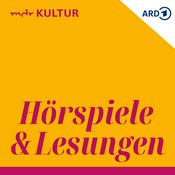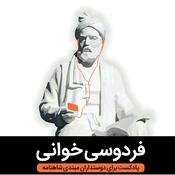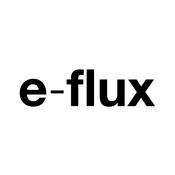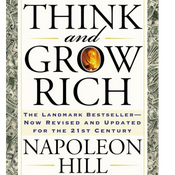78 Episoden
- This episode's for anyone writing speculative fiction who’s ever vanished into worldbuilding “for five minutes” and resurfaced three hours later with a fully functioning sewer system and… no actual scene.
This episode is about the quiet ways worldbuilding can sabotage your story when it becomes a substitute for plot, character, pacing, and reader trust. Not because worldbuilding is bad. Because it’s powerful.
And power needs a steering wheel.
In the episode, I break down the biggest traps and how to fix them fast, including:
- The World Bible Trap, where planning replaces drafting.
- The Museum Tour Opening, where the story starts with a brochure.
- The Encyclopaedia Dump, where exposition sits on the reader’s chest.
- The Currency Exchange Problem, where too many invented terms overload the brain.
- The Map Is Not a Plot problem, where geography pretends it’s narrative.
- Rules Without Consequences, where magic and tech don’t actually bite.
- The Stakes Inflation Spiral, where you start with the apocalypse and have nowhere to go.
- The Contradiction Sinkhole, where reader trust quietly leaks away.
You’ll also get a simple “worldbuilding that serves story” framework you can apply to a current WIP in 20 minutes, plus a 10-minute rewrite challenge to turn exposition into action.
If you’re drafting or revising fantasy, sci-fi, horror, alternate history, or slipstream, this one will give you instant traction.
Listen, then try this quick diagnostic: if you cut a paragraph of worldbuilding, what actually breaks? If the answer is “nothing”… congratulations, you’ve found a scene-level diet plan.
If you enjoy the episode, like, share, and subscribe, then come on over to www.thebookcoach.co to check out my story development service. - Back to the Book: Restarting a Shelved Draft Fast is a practical, no-nonsense episode for writers who’ve stepped away from a manuscript and want to re-enter it without rereading the whole thing.
You’ll learn a 60-minute re-entry sprint to regain story context fast, a 2-hour reset to rebuild your “story map,” and a simple toolkit for avoiding the biggest time-wasters like polishing old chapters instead of writing new pages.
If opening your draft makes you think, “Who are these people and why are they in a barn?”, this episode will get you writing again today. - Set yourself up for a 2026 writing year that actually survives real life. In this episode, you’ll build a simple, motivating plan without hustle-culture guilt or impossible schedules.
We’ll choose a one- to three-word theme to guide your decisions, pick three clear priorities (plus one powerful “not this year”), map your year by quarters, and set a weekly minimum that keeps you moving even when life gets loud.
You’ll also learn how to put writing into your calendar for the next two weeks, create a few tiny systems that make showing up easier, and use a straightforward reset plan when you miss a week (because you will - and that’s normal).
Grab a notebook and follow along: by the end, you’ll have a writing map you can trust, and a next step you can take today. - Is Legally Blonde secretly one of the best-plotted films of the 2000s? In this episode of Master Fiction Writing, host Stuart Wakefield performs a full story autopsy on Elle Woods’ journey from dumped sorority president to victorious Harvard lawyer.
We dig into how the film builds a rock-solid causal chain (where every major beat grows logically from the last) and how Elle’s external quest (Harvard, the internship, the murder trial) welds perfectly to her internal arc from “choose me” to “I choose myself.” Along the way, we unpack the emotional climax after Callahan’s harassment, the perm-fuelled courtroom payoff, and why the Bend and Snap is the least important thing in this script.
You’ll walk away with concrete questions and exercises you can apply to your own story, whether you’re writing novels, screenplays, or plays. Spoilers for Legally Blonde abound, but the craft lessons are evergreen. - If your opening goes boom but your hero can shrug and carry on, that’s fireworks, not story. In this episode I breaks down the real job of an inciting incident - to bind your protagonist to an obligation that costs something now and points the story arrow.
Here's what you'll learn:
What “binding” means in plain English and how to spot it fast
The five ways a moment can stick Bond, Irreversibility, New stakes, Direction, Pressure
A spoken mini-exercise you can even do while walking the dog
A quick diagnostic to fix fake incidents that are loud but optional
A simple before and after that turns a limp delivery into a clock-ticking crisis
We'll also look at:
Pride and Prejudice Darcy’s slight and Lizzy’s promise to herself
Legally Blonde Elle’s public vow to Harvard Law
A Streetcar Named Desire Blanche’s choice to stay and conceal
Want help binding your own opening? Start here and visit https://www.thebookcoach.co
Weitere Kunst Podcasts
Trending Kunst Podcasts
Über Master Fiction Writing
With 25+ years in theatre, media, and coaching, I’ve honed the art of storytelling. Now, I’m thrilled to share that expertise with you on “Master Fiction Writing.” Whether you’re crafting memorable characters or building gripping plots, each episode is backed by examples from literary pros. Recognised as a top book coach, my mission is to help your stories shine. Ready to master the craft? Subscribe today!
Podcast-WebsiteHöre Master Fiction Writing, Happy Me - Der Podcast von Martina Reuter und viele andere Podcasts aus aller Welt mit der radio.at-App
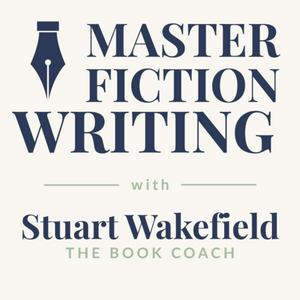
Hol dir die kostenlose radio.at App
- Sender und Podcasts favorisieren
- Streamen via Wifi oder Bluetooth
- Unterstützt Carplay & Android Auto
- viele weitere App Funktionen
Hol dir die kostenlose radio.at App
- Sender und Podcasts favorisieren
- Streamen via Wifi oder Bluetooth
- Unterstützt Carplay & Android Auto
- viele weitere App Funktionen


Master Fiction Writing
Code scannen,
App laden,
loshören.
App laden,
loshören.














